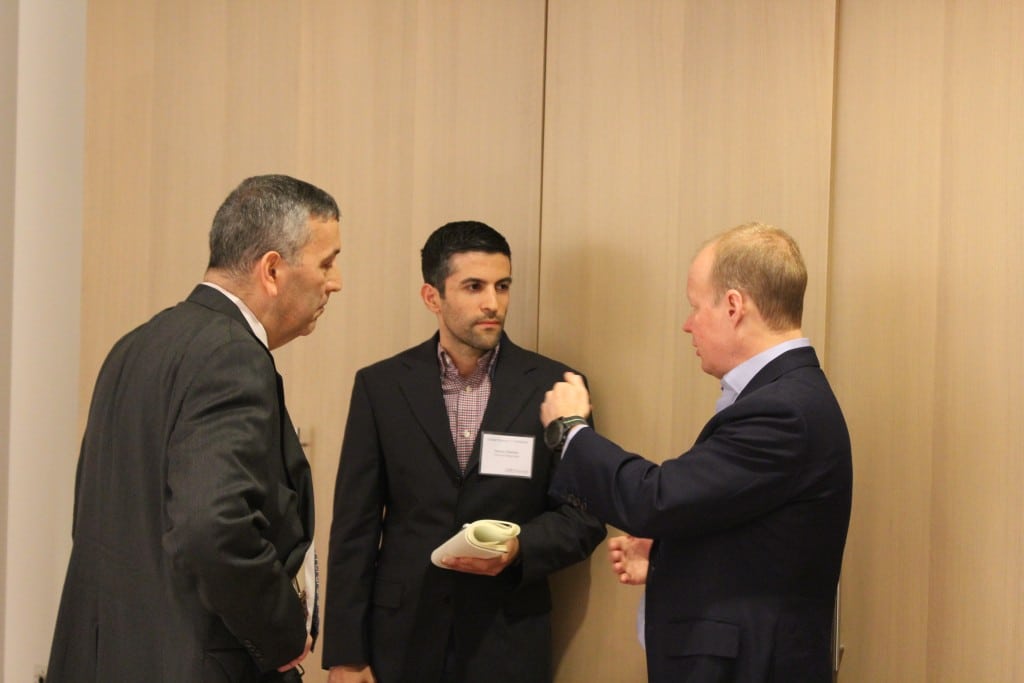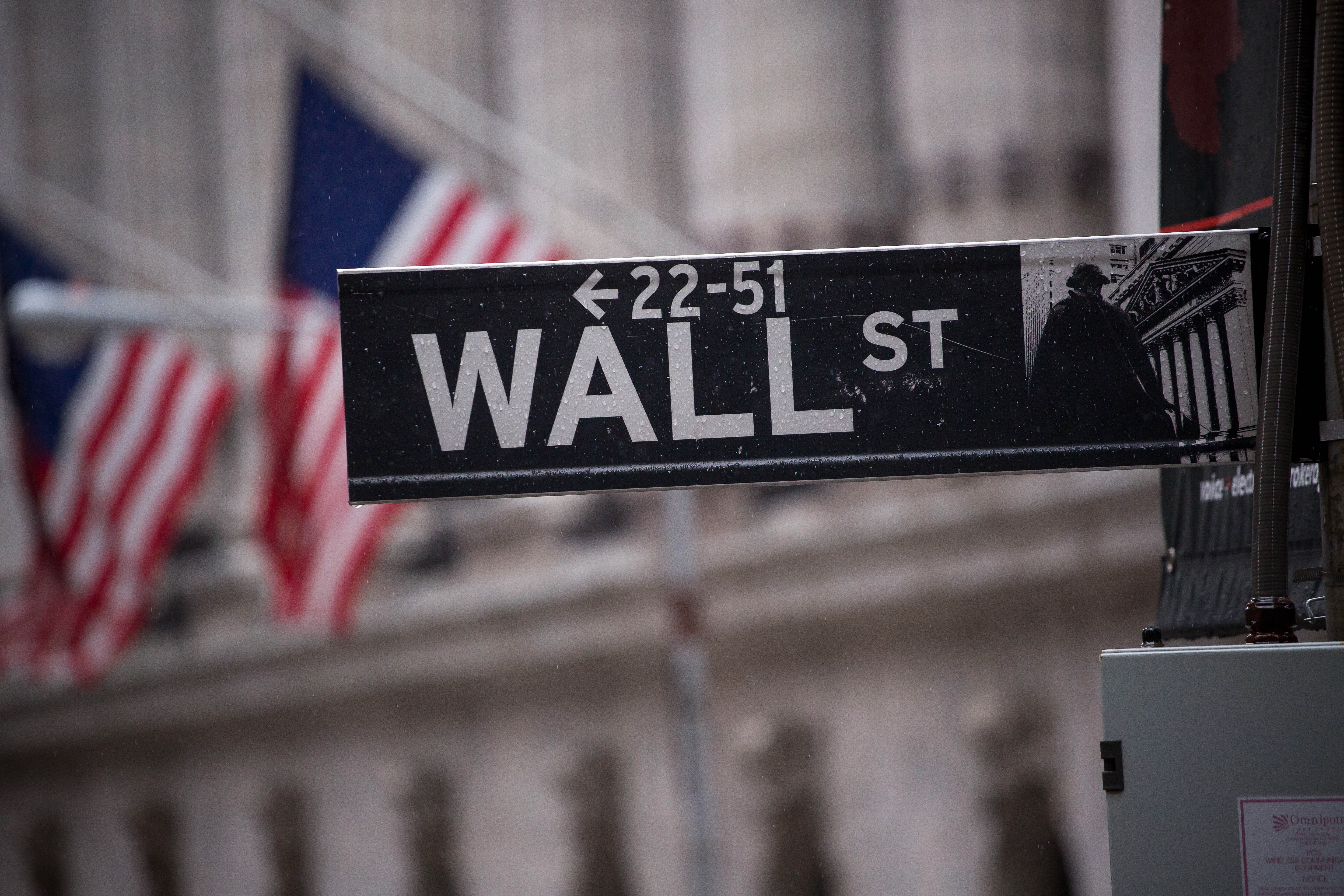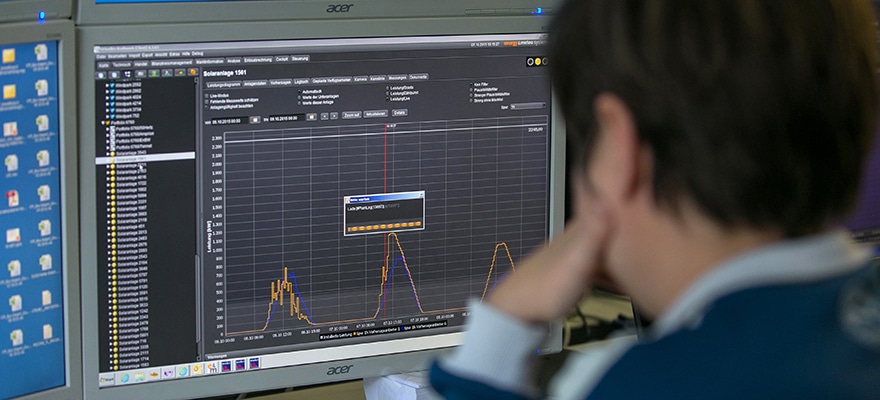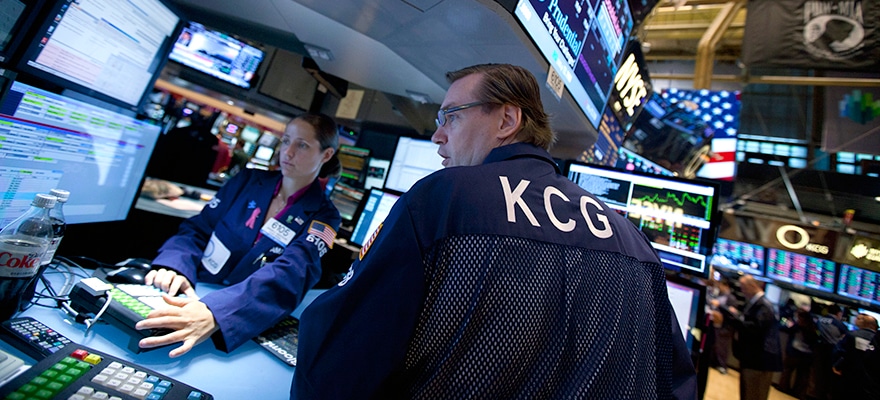Imagine if traders could buy shares of a private or public company on amazon.com, the same way they shop for retail products, and have them either delivered or held in their online Amazon account?
It doesn’t sound like any similar online retailer would be an ideal place for people to be trading securities, yet that could soon be a reality as the manner in which securities are traded will potentially become revolutionized in the US, following the last parts of the Jobs act which are coming into effect in May, coupled with the spur in FinTech innovations.
During a workshop hosted yesterday evening in Manhattan at OTC Markets’ Headquarters that Finance Magnates attended, there were two panel discussions that highlighted the evolution of the US capital markets, and the current and upcoming regulatory environment that is set to change the landscape dramatically. The workshop had to do also with different strategies for companies to raise capital in light of the new technology innovations and changing rules that are coming into effect.
Tail-end of Jobs Act kicks in
Regulatory changes typically lag behind new technology developments and innovation, meanwhile, the Jobs act, short for ‘Jumpstart Our Business Startups’ (JOBS) that was passed by Congress – it is not something a regulatory agency created – inherently has aspects of suitability and regulatory compliance within its main three titles, including mandates under title IV of the act.
Similar, yet different aspects of embedded rulemaking guidelines were included in the Dodd-Frank post-crisis reform that blanketed nearly every consumer-facing market, including the Wall Street Consumer Protection Act that affected brokerages and banks – causing consolidation and regulatory burden on market participants, while the JOBS act signed by Obama in 2012 passed with bipartisan support. It was seen as a positive means to literally jumpstart American startup companies.
'Reg A' dance
These new laws carry with them guidelines for retail and institutional investors, including under Regulation A+, often referred to as 'Reg A+', and other mandates that are a part of the recently enacted legislation by Congress, including the tail-end of the Jobs act called 'regulation crowdfunding' that is set to go into effect in May 16th.
The microfinance phenomenon in the private equity and venture capital space has already been growing strongly in recent years with regard to capital raising from angel investors and crowdfunding in order for investors to purchase shares within a company, even as donation-style capital raising platforms like Kickstarter became more successful.

Pictured left to right: Brian Korn with Manatt, Phelps & Phillips LLP (moderator); Scott Jordan with HealthiosXChange; Scott Anderson with FundAmerica; Ryan Feit with SeedInvest; Chris Tyrrell with OfferBoard; and Mark Elenowitz with BANQ.
Source: OTC Markets
The titles under the Jobs act, including the first four, set the basis to permit the various forms of securities to be offered to various types of investors, such as accredited investors, non-accredited, and for various limits and amounts, including during the private phase or pre-IPO stages of capital formation.
The type of companies that can offer some of these securities also varies, including unregulated firms, as well as regulated broker-dealers, or other SEC reporting companies, and including registered securities and/or unregistered securities.
Regulation A+ allows two tiers of securities offerings, with tier one allowing up to $20m per year, and with tier two permitting up to $50m, and with additional requirements such as reporting and audited financials. This will help set the basis for both issues of transparency and disclosure, along with retail investors ability to buy securities in these small to medium size private companies.
Recent industry analysis
Digital Currency Group founder, Barry Silbert, who has invested in over 70 startups, and sold one of his companies to Nasdaq, explained on the first panel yesterday - along with OTC Markets' CEO Cromwell Coulson - how capital markets have changed over the years, and the role of emerging venues such as the one we were located in during the workshop at OTC Markets Headquarters.
One analogy was that venues like Nasdaq, in its early years of launching, made it quite easy for companies to be listed – yet over the years as the exchange grew and companies competed to become Nasdaq-listed, it has since become more challenging for smaller firms to go straight to large exchanges for their initial public offering (IPO).

Source: Twitter
Changing venues
One perfect example of that Nasdaq analogy, in todays news, was from the online forex broker EZtrader.com, which just did a reverse stock split earlier this morning, and is already trading under a new ticker EZTDD, as it prepares to go from being listed on one of OTC Markets venues, to becoming listed on Nasdaq, contingent on meeting other related listing criteria for its planned switch.
“We view the Reverse Split as an important step in EZTD’s corporate development and an essential one in order to potentially meet NASDAQ’s share price eligibility criteria, one of the several requirements that are necessary to list,” said Shimon Citron, EZTD’s CEO, commenting in the companies press release dated April 7th 2016. “The Reverse Split, combined with EZTD’s improved revenue and financial results, we believe, will help to attract a broader and improved shareholder base and ultimately contribute to increasing shareholder value.”
Alternative venues, such the ones available through OTC Markets, provide a similar solution to a largely different target audience, such as local community banks, small to medium size companies, and even multi-billion dollar enterprises. Elio motors, one company that Finance Magnates wrote about last year with regard to crowdfunding and its listing with OTC Markets, was also mentioned during the discussions with regard to comparing the various stages and needs during capital raising initiatives.
Bringing it back
Mr. Coulson started OTC Markets as a way to bring back the ‘Nasdaq of the 90’s’ yet couple it with the current needs of the market - including technology and transparency related aspects, among other qualities. OTC Markets’ venues are now home to over 8000 public companies and with hundreds of billions in turnover.
During the panel yesterday, Mr. Silbert explained the prospects for cryptocurrency and Blockchain with regard to exchange technology including its potential use for settlement. He said Bitcoin could be explained from three angles, its use as a ledger (blockchain), its use as a rail (delivery medium for other assets/instruments), and its use as a currency (non-fiat based money). The talk of robo-advisors also came up, with a reminder of how most robo-advisor offerings circled around a handful of ETFs.
Mr. Coulson emphasized how millennials can become powerful influencers of how markets are traded, and compared how such users like to swipe through data on their smartphones, in a tinder-like application where decisions are made quickly from one asset or security to the next, and how upcoming rules that are going into effect in May look set to transform the landscape for further demographics in the U.S.
Another angle is that consumers who have strong loyalty towards American brands, including clothing, gear, and other textiles and products sold by US companies, these companies could see their customers become investors and not just owners of their products, and have them feel a deeper literal connection to the company as stakeholders - via private securities.
U.S. set to transform
FinTech coupled with regulatory changes that are going into effect, will make it easier for corporate America to become fungible, across many mediums, whether via privately traded or public markets, and this will change how investors trade, and how brokerages operate and solicit. Mr.Coulson said during the panel: “getting listed makes your company fungible.”
Meanwhile, when the doors open up to Regulation A+, and equity crowdfunding, there will be both an influx of firms marketing to retail traders to buy shares in private companies, along with an influx of traders investing into a new space, and with inevitable mistakes likely to be made during the process. There will likely be a huge buzz, and lots of noise as market participants start dancing to the 'Reg A' theme.
However, broker-dealers, such as those that deal with the public and retail traders directly, are already accustomed to the scrutiny by SEC and FINRA, and could be a potentially safer option for traders who are seeking Regulation A+ securities.
However, SEC reporting firms are not able to participate in Regulation A+ offerings yet according to people close to development, and companies are preparing a request for rule making to the regulator to ask that the SEC reporting firms be included in this potentially lucrative new capital market structure.
Finance Magnates received comments from Mr. Coulson with regard to related questions about SEC reporting firms getting left out: "Our opinion is that SEC reporting companies are already providing good public disclosure and shouldn’t be left out of the opportunity to raise capital online that is provided by the JOBS Act and Regulation A+."
Equity crowdfunding bonanza
Conversely, traders looking for a more loosely regulated offering could go through unregulated companies offering such crowdfunding-based payment solutions for retail traders to buy Reg A+ shares.
This will create an overall market, where the two opposites (both regulated and unregulated) will potentially foster the good and bad from both sides, and which could serve as a basis for future revisions to rules or related changes after the initial growth spurt.
Trading securities on a venue link OTC Pink, which is like the “starwars bar of markets” as put by one of the speakers during the subsequent panel yesterday, highlights that even smaller companies where less information is known about their business, still have the benefit of being public where minimum reporting standards and aspects of transparency are required.
Thus, as new Reg A+ rules go into effect, along with the existing Reg A and related titles in the current landscape, the volumes and interest in alternative trading systems (ATS) venues should go up, and especially as certain of these new classes of securities cannot trade on a National Stock Markets like Nasdaq or NYSE, as an example.
Market efficiency and HFT
After the first panel concluded, I spoke with OTC Markets CEO, who explained that HFT had helped reduce tracking errors for certain dual-listed securities where the ADR was on his venue, compared to the price of the security traded in its home country. The improvement to any degree of tracking error, shows how market efficiency can be improved with HFT, which would otherwise cause wider spreads in its absence. He followed his earlier comments in the panel explaining how HFT takes place mostly around larger securities were complex mathematical arbitrage is used.
In response to related questions I posed, Mr. Coulson said: "My focus is on the positive. HFT technology is what gives investors tight spreads & Liquidity in ETFs, options, indexes and ADRs. Instead of demonizing HFTs, we should focus on how we can facilitate bringing more electronic market makers and diverse liquidity providers into our public markets."
With regard to current regulatory challenges, he added: "The complexity of 50+ states different securities laws are restricting entrepreneurs' access to capital. We need to make state securities laws uniform, and provide federal exemptions for SEC reporting companies for capital raising and trading to facilitate capital formation and interstate commerce."
The second panel yesterday include six speakers from across the securities industry, focused on areas such as legal and compliance, broker-dealer, and investment firms, as well as FinTech solutions for approaches to various types of capital formation and securities. It's impressive to see the number of investors and amount of capital that companies - like those represented on the panel - have been able to reach through the use of alternative channels, and using the new Reg A and related offerings.
The companies represented included Seedinvest, which is a platform for funding startups with over 17000 accredited investors, BANQ which provides qualified investors with access to unregistered securities, as well as IPO and exchange-traded equities, the firm FundAmerica which provides compliance solutions for related securities offerings, HealthiosXchange which deals with raising money and funding health-care related securities and private equity, and Offerboard which also does funding and capital raising, as well the legal firms Manatt Phelps & Phillips.

From right to left: R. Cromwell Coulson, President and CEO of OTC Markets Group Inc., Steven Hatzakis, Editor, Finance Magnates, and an attendee.
Source: OTC Markets


















